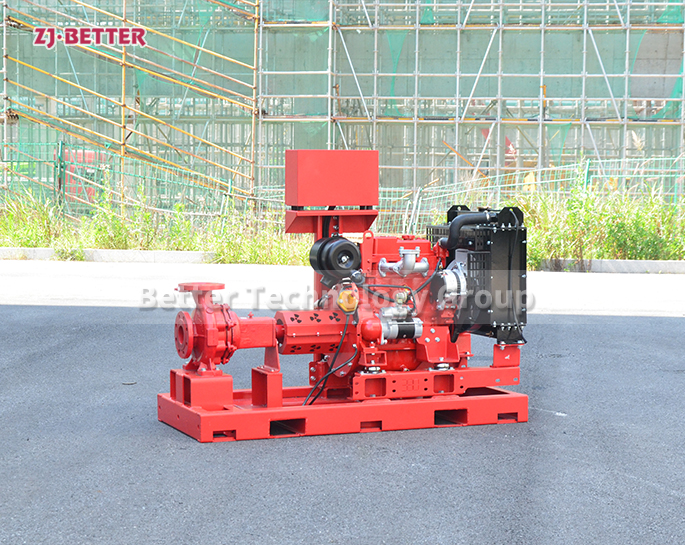Why Is Water Quality Important for Fire Pump Longevity?
Water quality plays a crucial role in determining the longevity and performance of fire pumps, as it directly affects the pump’s internal components, efficiency, and overall durability. Here are key reasons why maintaining good water quality is essential:

-
Corrosion Prevention: Poor water quality, especially water containing high levels of chlorides, sulfates, or other corrosive agents, can cause the pump’s internal parts (such as impellers, casings, and seals) to corrode. This corrosion weakens components, reducing the pump's lifespan and requiring more frequent repairs.
-
Scale and Mineral Buildup: Hard water containing high levels of minerals, like calcium and magnesium, can lead to scaling within the pump and piping system. This buildup restricts water flow, reduces efficiency, and may lead to overheating, increasing the wear and tear on the pump.
-
Sediment and Particulates: Water with sand, silt, or other particles can wear down the impeller and other critical parts, eroding them and compromising pump performance. Filters or strainers can help mitigate this, but regular water quality monitoring is essential to avoid damage.
-
Microbial Growth: Certain bacteria can form biofilms inside the pump and piping, which not only restricts water flow but also can cause corrosion and fouling. For fire pumps in standby systems, stagnant water can further encourage microbial growth.
-
Temperature and pH Balance: High or low pH levels can corrode metallic components, while extreme water temperatures can affect the pump's operational limits, causing premature failure or the need for special materials to handle these conditions.
Regular water testing and treatment—along with adherence to fire pump standards like NFPA 20—help to ensure that the water entering the fire pump is clean and within the acceptable quality range, ultimately protecting the system from premature failure and ensuring reliability during emergencies.

.png)
.png)

.png)


